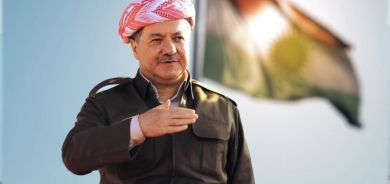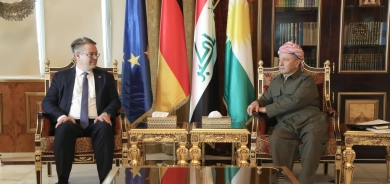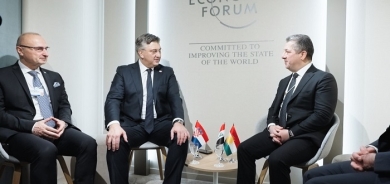Dr. Ian Lustck to Gulan: There still is the threat of war between Iran and Israel

Dr. Lustick holds the Bess W. Heyman Chair in the Political Science Department of the University of Pennsylvania. He teaches Middle Eastern politics, comparative politics, and computer modeling. He is a recipient of awards from the Carnegie Corporation, the National Science Foundation, the National Endowment for the Humanities, and the Social Sciences Research Council. Before coming to Penn he taught for fifteen years at Dartmouth College and worked for one year in the Department of State. His present research focuses on the implications of the disappearance of the option of a negotiated “two-state solution” to the Israeli-Palestinian conflict and techniques of counterfactual forecasting. He is a past president of the Politics and History Section of the American Political Science Association and of the Association for Israel Studies, and a member of the Council on Foreign Relations. Among his books are Arabs in the Jewish State (1980); For the Land and the Lord (1988, 1994); Unsettled States, Disputed Lands (1993); Trapped in the War on Terror (2006); and Paradigm Lost (2019). In a written interview he answered our questions like the following:
Gulan: How do you characterize the current war in Gaza in terms of causes and consequences?
The attack on October 7 is best understood as a characteristically brutal and politically unsophisticated prison revolt, with Gaza as the prison, Hamas as the prisoner organization, and Israel as the state within which the prison is located. The response of the “prison authorities” has been singularly brutal and inhuman, but also typical of the viciousness with which prison revolts are treated. The scale of the violence and its lethality toward masses of helpless noncombatants can be described as genocidal, though I would not refer to Israel’s actions as genocide in the way I use the term.
Gulan: How do envisage the scenarios of what is called the day after of this war? Is there any realistic prospect for reaching a just and permanent solution for this conflict?
I do not believe there is a path via negotiations toward a just and permanent solution for this conflict because that would require governments in Israel and among Palestinians ready to agree to a division of the country which now means the “secession” of the West Bank and Gaza from the State of Israel. I believe, nevertheless, that world leaders will launch an effort to negotiate such an agreement which the honest ones and informed ones among them will know is doomed, but which they will be unable to avoid initiating. This “peace process merry-go-round” will grind round and round for three to four years before ending in failure. Meanwhile arguments about how to rebuild Gaza with Israel in charge of security will paralyze any hope for real or dramatic transformation there, setting the stage for the situation to slide back to Israeli occupation and rule of the strip. What is now most important is not a plan for a comprehensive settlement, but arrangements that can provide security to both Israelis and Palestinians and allow political evolution toward true democracy to take place in Israel (from the river to the sea) over several generations. That will require, among other things, sustained and continued attention by the world community to what is really going on in Israel/Palestine.
Gulan: Do you think the Gaza War has any bearing on Russia- Ukraine war, or is it irrelevant?
The logic that is used to rally support for Ukraine against Russian aggression helps focus world opinion, including American opinion, on the plight of Palestinians and the unacceptability of states who treat the rules of war or the lives of civilians as unworthy of sufficient consideration to prevent massive collateral damage. The interest the United States and Europe have in opposing Russian aggression encourages them to take a tougher stand toward Israel than they otherwise would.
Obviously, there is no longer a shadow war between Iran and Israel, so how do see the conflict between these two archenemies developing?
Gulan:There still is the threat of war between Iran and Israel, one linked to the strong possibility that the United States will fail in its efforts to prevent an Israeli attack on Hezbollah in Lebanon or to achieve a ceasefire in Gaza that would be extended to Lebanon. If Hezbollah uses even a large fraction of its weaponry against Israel, the Israeli response could be so extreme that Iran will become more directly involved or at least that Israel, thinking Iran might attack, could itself take action against Iran.
Gulan: What USA should have and could have done differently to make the Middle East more peaceful and prosperous?
Washington should long ago have begun acting according to the imperative that Israelis and Palestinians, as President Biden and Secretary of State Blinken have said so many times, have equal rights to dignity, democracy, security, and prosperity. This may, in the short run, mean that the United States changes its policies to help make Israel feel the costs of acting as a rogue state in the world. But that will be politically very dangerous for an American President, and most unlikely during an election year.















